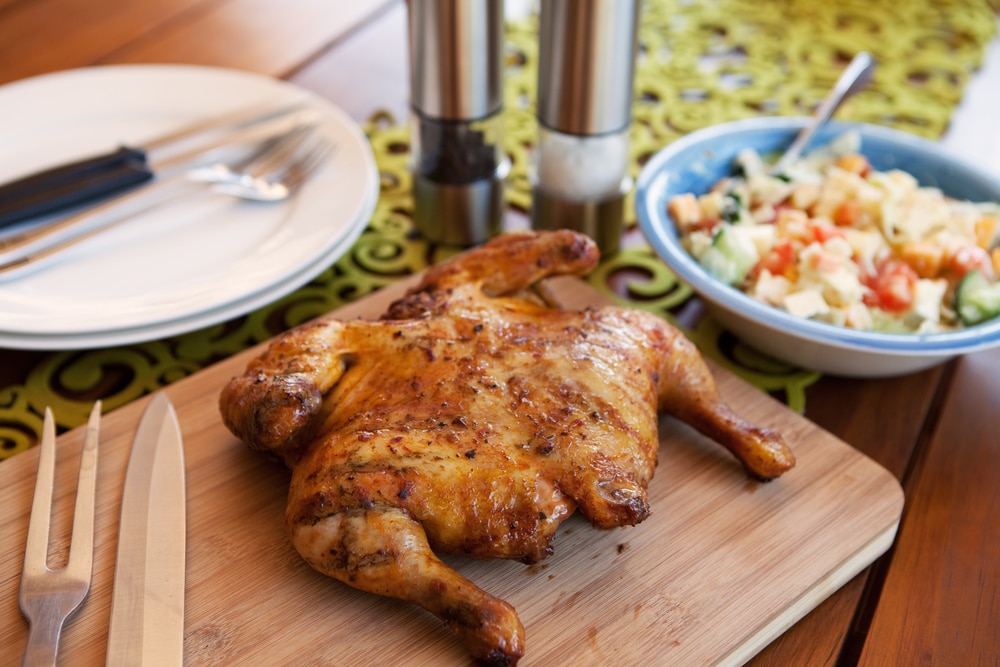The marinade here includes sweet smoked paprika, but hot paprika can be used instead for a spicy kick.
Ingredients
- •One 1.6 to 1.8 kg (3½ to 4 pound) chicken
- •60 ml (¼ cup) hard cider or apple juice
- •60 ml (¼ cup) orange juice
- •60 ml (¼ cup) olive oil or vegetable oil
- •1 tablespoon sweet or mild smoked paprika
- •1 tablespoon orange honey or orange marmalade
- •2 cloves garlic, minced
- •2 bay leaves, optional
- •5 ml (1 teaspoon) salt
- •2.5 ml (½ teaspoon) freshly ground black pepper


Preparation
Place the chicken on a work surface and use kitchen shears to cut along either side of the backbone and remove it. Turn the chicken over, spread the chicken open like a book, and press down firmly on the breastbone until it cracks and flattens.
Re-shape the chicken so it is compact, and place it in a large heavy-duty sealable plastic bag. Add the cider or apple juice, orange juice, olive or vegetable oil, paprika, honey or marmalade, garlic, bay leaves, salt, and pepper. Seal the bag, and carefully (so that the bones don’t puncture the bag) turn the bag so that the contents mix and coat the chicken. Cover with a second bag or place in a bowl, and keep refrigerated or thoroughly chilled on ice until grilling, up to 24 hours.
Transfer the chicken to a work surface, reserving the marinade. Flatten the chicken again, skin side up. If metal or bamboo skewers are available, thread two through the chicken to keep it intact during cooking.
Prepare a medium-to-low wood or charcoal fire with a pan of water nearby in case of flare-ups from dripping fat. Place the chicken skin-side up on the grill, and cook until golden on the underside, about 15 minutes. Turn the chicken and continue to cook, brushing with the reserved marinade, for another 15 minutes. Keep the fire low enough that the chicken doesn’t burn. Continue to cook in this fashion until juices run clear and an instant-read thermometer reads 82°C (180° F) when inserted into the thickest portion of the thigh, 45 minutes to one hour total cooking time. Cut the chicken as desired, and serve.

